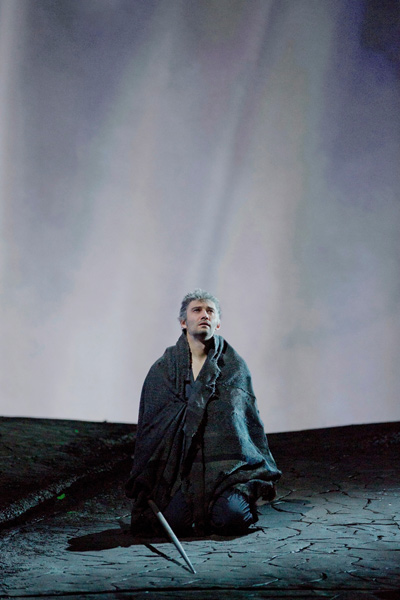It was some time since I’d been to a performance of Mozart’s greatest though not his deepest opera, Le Nozze di Figaro, one of the works of which I can’t imagine ever tiring. And it is, despite some heavy vocal demands, an opera which normally suits students at the music colleges well. There weren’t any obvious grave shortcomings in the first night’s performance of it at the Guildhall School of Music & Drama, but it annoyingly failed to achieve lift-off. Nerves may well have a lot to do with that: the playing of the Overture had enough problems of intonation among the winds, which later played beautifully, to suggest that. Business suits were the order of the day for the male cast, and of course cell-phones; a TV was on when the curtain rose, and the Stars and Stripes were prominent, though what light setting Figaro in the United States might cast on the opera — or for that matter on the United States — remained unclear. I’m sad, though, to see that the willingness of famous directors to think of new settings that make nonsense of much of the action and text of a work has now infected college productions. Why on earth would any contemporary North American be talking about the droit du seigneur (I realise it probably didn’t exist in 18th-century Spain, but that’s not the point)? The whole upstairs-downstairs aspect of Figaro, which is so central to the action, can only make sense in certain selected times and places.
Granted the relocation, the staging was largely traditional. Almost all the singers had good, firm voices, but oddly enough the best singing tended to go with the best acting. James Platt’s Bartolo would grace any production of the work, technically secure and never overacted, as this role so often is. The first-night Cherubino, Anna Starushkevych, was one of the most plausible adolescent youths I’ve seen onstage, and her breathless singing was easily attributable to the character rather than the performer. Lucy Hall’s Susanna had all a Susanna needs apart from individuality. But the leading two men, Figaro and the Count, seemed uneasy in their roles, Benjamin Appl in the latter part attempting but failing to be cool, even if he was attempting to attempt to be cool. I expect that later performances were more relaxed.
I went to the Met’s relay of Parsifal with very high hopes indeed, which were extensively dashed: though my highest hope, Jonas Kaufmann’s Parsifal, exceeded all my expectations. He gave the most moving, most complete, deeply felt and staggeringly sung account of the role that I have ever seen or heard. The trouble was that his performance was, for the most part, in a context which failed to measure up to it: thus the long scene between Parsifal and Kundry in Act II, in which she tries all conceivable means of seducing him, in one of Wagner’s most psychologically astute and demanding exchanges, was wrecked by the unseductiveness of Katarina Dalayman, unbecomingly dressed and vocally stretched beyond her limits. Their scene followed the least sexy, least sensual Flower Maidens’ episode, not even those shameless key-changes carrying a remote erotic charge.
Depression set in early on, when the curtain rose to show a line of — would you believe it? — men in business suits. They took off their ties and jackets, and remained on the set throughout the whole of Act I, undermining the first stage of Parsifal’s pilgrimage, which involves moving from the lands of the Grail into the temple, where he encounters the knights for the first time. The only hints of Nature in the production are the impressive cloudscape, and some astronomical objects that loom into sight at crucial points. Besides the men in suits, there is a huddle of women on the other side of the stage, hard to guess who or why.
Apart from Kaufmann, the finest singing and acting comes from Peter Mattei as Amfortas, as graphic a portrayal as I’ve seen of his spiritual and physical agony, and sung with wonderfully full tone. That is just what René Pape lacks. His Gurnemanz is, alas, the traditional windy bore, where a succession of great basses has shown us how wonderful a role it can be. Pape seems to consider acting as supererogatory, too. I had hopes of Daniele Gatti’s conducting, but they didn’t survive the Prelude. The orchestral sound was mainly subdued, undetailed, above all lacking the long line.
Despite which: Act III was almost the great experience it should be. Parsifal entered in a state of seemingly terminal collapse, slowly revived thanks to Kundry’s silent ministrations (beautifully acted by Dalayman), and took command with calm and noble dignity when anointed by Gurnemanz. His entry in the final scene was exalted, ecstatic, and finally that exaltation, which should be implicit throughoutParsifal, was conveyed to the audience. Perhaps if the rest of the performance had been on that level it would have been unbearable.






Comments